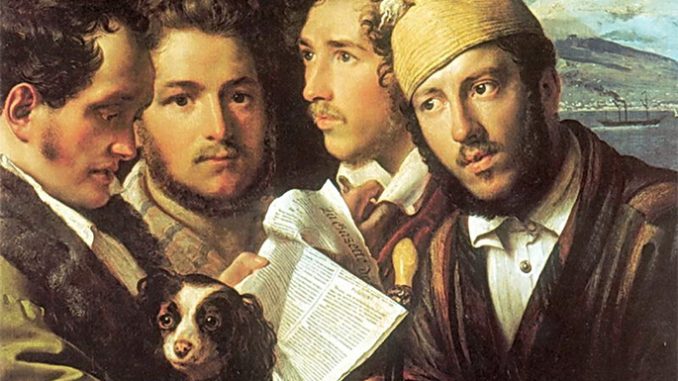
Pius XII and the Jews – “The opening of the archives on the pontificate of Pope Pius XII has launched a new season of studies that will hopefully prove fruitful and stimulating.” On the already-public negotiations between the Holy See and Germany (L’Osservatore Romano)
Male and Female – Abigail Favale’s new book, The Genesis of Gender, offers a lucid analysis that does not shy away from boldly (though lovingly) defending the truth. From Christianity to Progressive Gender Theory and Back Again (Town Hall)
Who’s Responsible – “I felt for the poor, feeble, old man, in the vast Edmonton football stadium, where he was cast in the role of the football.” The Pope Comes to Apologize (The Catholic Thing)
Jane’s Revenge – Jane’s Revenge issued an online post, citing operations in 16 cities, as well as in “countless locations invisibly”, saying that “it’s open season” on “anti-choice” groups. Violence against pro-lifers, attorney general asked to respond (Catholic League)
A post-Christian Ethos – “The radicalized form of modernity … has taken aim at the dialectical interpenetration of truth and liberty which defines free and dignified human lives and free political communities worthy of the name.” Moral Inversion and the Things that Endure: Thoughts on Chantal Delsol’s The End of the Christian World (Kirk Center)
Right and Wrong – The word “evil” is out. So, too, is “perversion.” If something is morally wrong, Kit Wilson points out in The Critic, we now say that it is “not OK” English Is “Not OK” (Prufrock Substack)
TLM – On July 22, Cardinal Wilton Gregory issued his long-anticipated decree on the implementation of Pope Francis’s 2021 motu proprio Traditionis Custodes in the Archdiocese of Washington. The Living Branch of the Traditional Latin Mass (First Things)
Drag Queens – The Florida Department of Business and Professional Regulation (DBPR) served a complaint to a Miami bar that offers lewd drag shows specifically targeting children. DeSantis Files Complaint Against Florida Bar That Hosted Drag Show For Children (Catholic Vote)
Foreign Criticism – Supreme Court Justice Samuel Alito has mocked Prince Harry and the “string of foreign leaders” who attacked the US for scrapping Roe v. Wade. Justice Alito Mocks Prince Harry for Roe v Wade Criticism (New York Post)
On Resignation – Pope Francis acknowledged that in the wake of a grueling five-day trip to Canada, his ongoing health challenges may force him to “save [my energies] a bit to be able to serve the Church,” or alternatively, to “think about the possibility of stepping aside.” After grueling Canada trip, Pope acknowledges limits and hints of future resignation (Crux Now)
(*The posting of any particular news item or essay is not an endorsement of the content and perspective of said news item or essay.)
If you value the news and views Catholic World Report provides, please consider donating to support our efforts. Your contribution will help us continue to make CWR available to all readers worldwide for free, without a subscription. Thank you for your generosity!
Click here for more information on donating to CWR. Click here to sign up for our newsletter.




Comment on “Right and Wrong English is Not OK”.
Morality loses its bite with abandonment of natural law, the Christ revelation event and permanent moral principles. Author Mattix cites The Critic’s Kit Wilson’s take on Alasdair MacIntyre, that he ‘defined emotivism as the view that one’s feelings rather than an objective standard determine right and wrong’. MacIntyre plumbs more deeply into the loss of virtue as “sentiment that effects adherence to rules’” (After Virtue).
MacIntyre’s significant insight is his focus on rules, today the battered understanding of moral principles during the tenure of Pope Francis. Conversation suggests MacIntyre [who prophetically authored After Virtue 1987] has moved from justice that identifies a person’s inherent rights to transitory societal concepts. There is no real basis for distinguishing good and evil from conceptual feelings about right and wrong, because right and wrong may change according to circumstances, as does good and evil in Amoris Laetitia.
“we are asking for courageous hearts to come out after dark.”
*******
If Jane & her Revengers are courageous, they shouldn’t require the cover of darkness. Good grief.